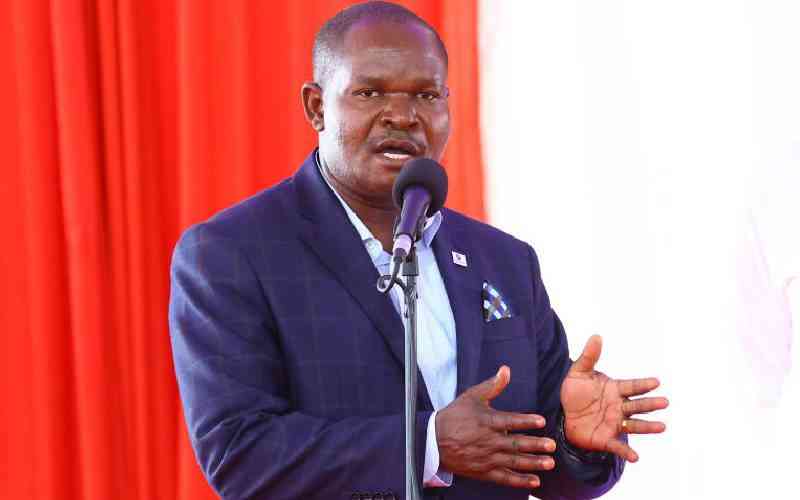Have you ever heard of the National Social Assistance Authority of Kenya?
It is now just over four years since the promulgation of the Constitution. It is a modern Constitution. A blend of ideals, principles and prescriptions. Will this Constitution turn out to be like the thrills of courtship, with short lived romance and a trail of broken promises?
Under the Constitution everyone in Kenya is entitled to enjoy the following services from the Government for free. Quality health care services. Accessible and adequate housing. Toilets and bathroom facilities that offer reasonable sanitation. No person in Kenya should suffer the pangs of hunger. Adequate, clean and safe water.
Every child in Kenya is entitled to free and compulsory basic education. Since the child is any person under 18 years, primary and secondary education should be free and compulsory.
Children are also entitled, at the cost of Government, to basic nutrition, shelter and health care.
Persons with disabilities are entitled to education facilities and institutions compatible with their disabilities. Those who cannot support themselves and their dependants have a right to receive social assistance.
Are the social justice rights provided for under the Constitution unachievable and therefore a mirage? In January 2013 Parliament enacted the Social Assistance Act. Under this law financial and social assistance should be provided to poor orphans, vulnerable children, poor elderly persons, youth who are unemployed, disabled persons, widows and widowers, and people who have been disabled by acute chronic illness.
It is this law that creates the National Social Assistance Authority of Kenya. This is the authority that has the power to pay for food, shelter, clothing, fuel, utilities, household supplies, personal requirements, health care services, transportation expenses, funeral and burial expenses for those who qualify. It has the legal power to offer rehabilitation, counselling, adoption, and day care services and income assistance.
A majority of Kenyans live in abject poverty. They have no access to basic education, adequate housing, sanitation, quality health care, clean and adequate water and basic nutrition. Over the years the government has created many funds within and outside the law to meet some of these needs. The latest creation are Ward Funds. The others include CDF, Uwezo, Kazi Kwa Vijana, Women Fund, and funds for orphans and the elderly. All these funds fall under social assistance programmes.
There is no single database of the individual beneficiaries of funds disbursed under CDF, Wards, Uwezo, Kazi Kwa Vijana, women, or the elderly. There are no statistics of the total disbursements paid so far and their social and economic impact.
The National Social Assistance Authority now has the legal mandate to create such a database and an information management system of all social assistance programmes in Kenya. It has the authority to co-ordinate and harmonise all social assistance programmes. Every person and institution managing and disbursing government funds for such programmes is under a legal duty to give statistics of disbursements, and names and status of beneficiaries to the Authority.
One of the biggest cause of the conflict between governors, senators, Members of Parliament and Members of County Assemblies is the government funds they have access to for social assistance programmes. Over the years, such funds, though created for the benefit of Kenyans, have been turned into political weapons and shields. The establishment of a functional National Social Assistance Authority would put this to a stop, or check its most obvious abuses.
All funds set aside for social assistance programmes after February 2013 including CDF, Uwezo, Women, Orphans and for the Elderly, should have been managed under the oversight of the National Social Assistance Authority.
Have you heard of the authority? Or any person appointed or working under it?
Stay informed. Subscribe to our newsletter
 The Standard Group Plc is a
multi-media organization with investments in media platforms spanning newspaper
print operations, television, radio broadcasting, digital and online services. The
Standard Group is recognized as a leading multi-media house in Kenya with a key
influence in matters of national and international interest.
The Standard Group Plc is a
multi-media organization with investments in media platforms spanning newspaper
print operations, television, radio broadcasting, digital and online services. The
Standard Group is recognized as a leading multi-media house in Kenya with a key
influence in matters of national and international interest.
 The Standard Group Plc is a
multi-media organization with investments in media platforms spanning newspaper
print operations, television, radio broadcasting, digital and online services. The
Standard Group is recognized as a leading multi-media house in Kenya with a key
influence in matters of national and international interest.
The Standard Group Plc is a
multi-media organization with investments in media platforms spanning newspaper
print operations, television, radio broadcasting, digital and online services. The
Standard Group is recognized as a leading multi-media house in Kenya with a key
influence in matters of national and international interest.







